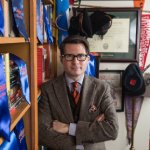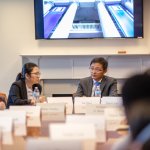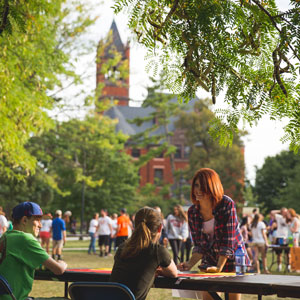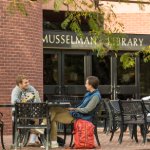
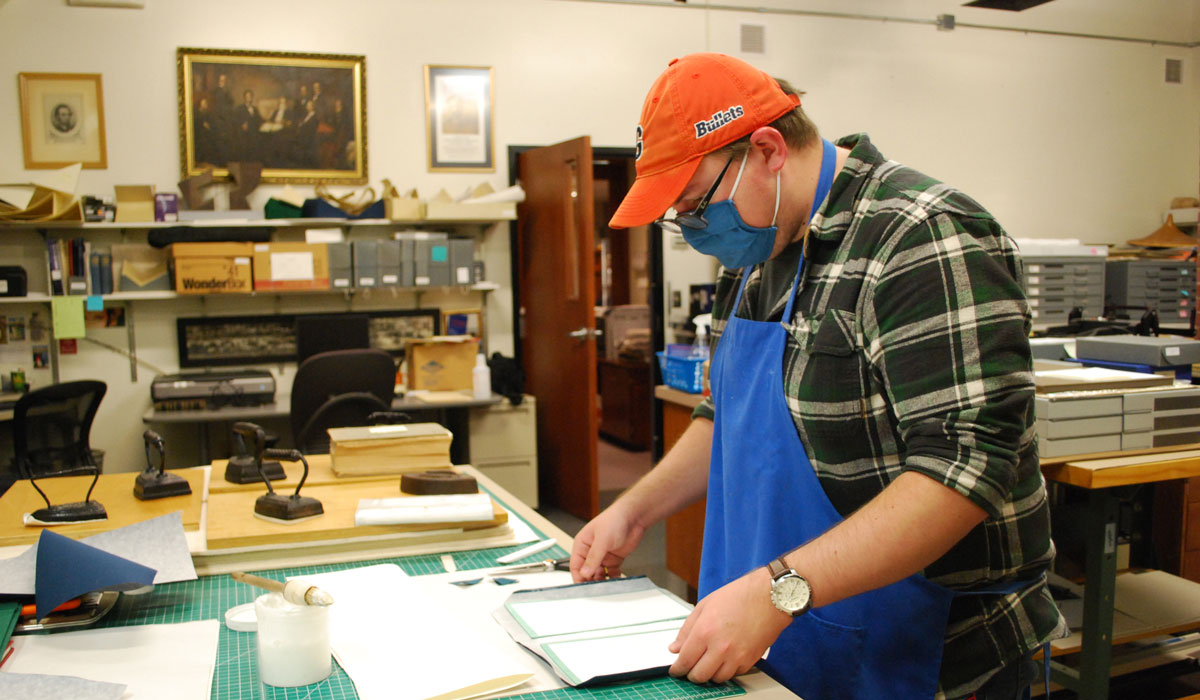
How can you satisfy your global ambition at Gettysburg College?
The answer might be studying abroad, but for Chris Lough ’22, who has yet to leave the country, opportunities abound right on Gettysburg’s campus to reach new heights across disciplines—and across continents.
From a young age, Lough, a history and French double major, knew that a world beyond the confines of his hometown of Wendell, N.C., mattered to him. He remembers carefully studying placemats with maps of the world at the kitchen table and went on to compete in the 25th Annual National Geographic Bee in Washington, D.C., in seventh grade.
“Growing up in suburbia and never being out of the U.S., I’ve always had a fascination with different parts of the world that I carry very deeply,” he said. “I hope to be able to expand on and capitalize on that in my career.”
Before his time at Gettysburg even began, Lough hoped to find a college that had opportunities to satisfy his fascination with the world. Gettysburg’s study abroad offerings—supported by the Center for Global Education—and robust language department proved ideal.
“The study abroad program was one of the big factors influencing my decision to come here,” he said. “I knew that when I came to college, I wanted to continue studying French, so it’s worked out really well.”
Although Lough has yet to go abroad due to the COVID-19 pandemic, he plans to study in Nantes, France, this upcoming fall. He has, however, found plenty of opportunities to study French in conjunction with history without leaving Gettysburg’s campus.
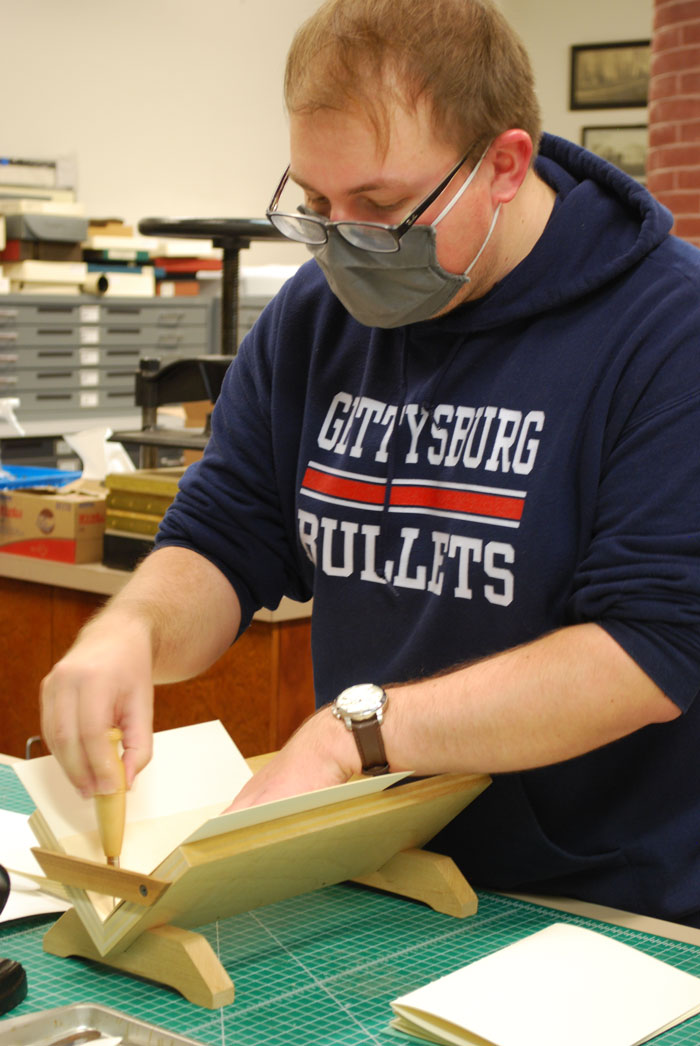
This semester, Lough has been working in Musselman Library’s Special Collections, and spends his time sifting through written exams from a girl’s school in Paris dating back to the turn of the 20th century. He melds his love for history and French by transcribing the exams and making translations for the College’s digital collection.
“It’s interesting seeing what these girls were learning at this school because it also reflects the different values that were being instilled in them,” he said. “It was a tailor-made project for me.”
In addition to working in Special Collections, Lough brought his language expertise to the table for the Jack Peirs Project, a digital repository of letters from the First World War spearheaded by History Prof. Ian Isherwood.
“There’s a lot of correspondence that’s exclusively in French that Prof. Isherwood and others on the team weren’t able to access,” he explained. “So, I was able to provide translations for that and whatever other French materials they might have.”
Not only does Lough’s command of the French language set him apart, but he has also honed a unique set of skills working with digital humanities tools, whether that be websites or programs, which prove beneficial during a time when virtual offerings are vital and more widespread.
Lough will use this digital humanities experience during his virtual Fulbright Canada-MITACS Globalink Research Internship Program, specifically for the “Confluence of Religious Cultures in Medieval Historiography” project. He will complete research alongside Prof. Francisco Peña from the University of British Columbia.
“Digital humanities is almost like making museum exhibits for an online audience,” he said. “You have to figure out how to draw people’s attention and convey information in a way that’s engaging to the average viewer. It’s a balancing act.”
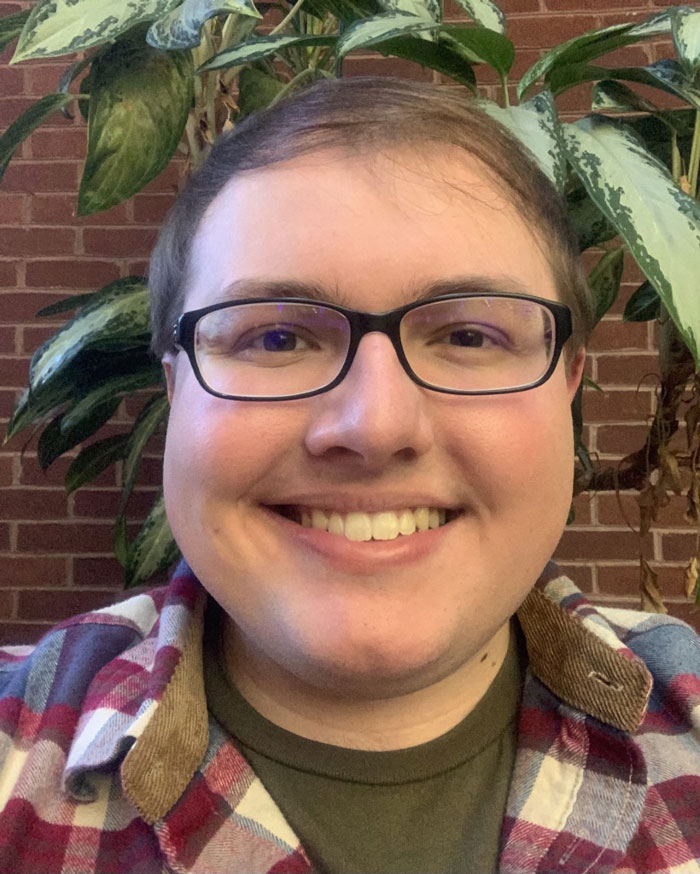
Gettysburg’s extracurricular and academic offerings have bolstered Lough’s passion for taking an in-depth look at historical topics and relating them to a general audience. Lough, intrigued by the opportunity to build his global perspective, took a course on 16th through 19th century history of Tokugawa, Japan, with History Prof. Dina Lowy in the spring of 2020.
During the class, he wrote a paper that went on to win the Marianna McJimsey Award from ASIANetwork—a consortium of 170 North American colleges, including Gettysburg College, that encourages Asian studies within the framework of a liberal arts education. The award provided Lough the chance to be published in ASIANetwork Exchange, the consortium’s journal.
“[This course] was the perfect combination of my interests in history, philosophy, and linguistics,” he said. “I don’t speak Japanese, but with the help of different secondary sources and scholars, I was able to look at how Western missionaries presented traditional Catholic concepts in a Buddhist- and Shinto-influenced society.”
Lough has also found his niche in historical research and scholarly work at Gettysburg as a student assistant in the public policy office, where he helps identify possible contenders for the yearly Gilder Lehrman Lincoln Prize.
He has also written papers that have been published in The Cupola, Gettysburg’s digital repository for scholarly work, as well as The Gettysburg Historical Journal and The Journal of the Civil War Era—the latter two of which he serves as the co-Editor-in-Chief.
In reflecting on his dedication to historical research at Gettysburg, Lough—who intends to pursue a PhD in history and become a college professor one day—finds that history provides a pathway to understanding the present.
“The past is a foreign country,” he said. “Not only does it give you a window onto our collective past, but it gives you that window into different social mores, religious beliefs, and language. [History gives you] a different view of everything about the human experience.”
Discover how a Gettysburg College education allows you to explore the past to propel your future.
By Phoebe Doscher ’22
Photos courtesy of Mary Wootton and Chris Lough ’22
Posted: 06/01/21
